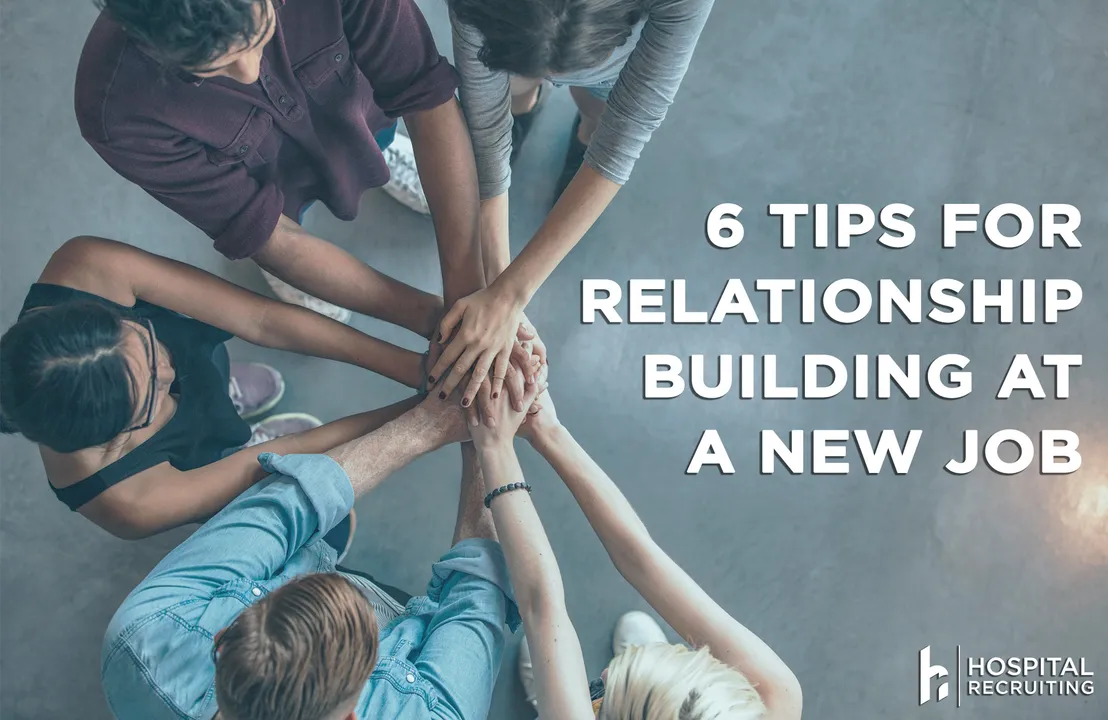6 Tips for Building Relationships in a New Job

Starting a new job can is exciting, with new tasks, a new environment, and new people to get to know. As you navigate a new workplace and role, building relationships with your colleagues is essential both for your future professional success and your fulfillment in your new role. Building strong connections enhances your satisfaction with your new job and builds a support network that will help you succeed.
1. Take the Initiative
Taking the initiative is vital in a new role. Your new colleagues are already part of the team with established relationships. If you wait for them to reach out to you, it will take much longer to establish yourself in your new workplace culture.
Be proactive in introducing yourself and initiating conversations with your teammates. Be sure to take any opportunities to be actively involved in workplace social events, team lunches, and other gatherings where you can meet and interact with your coworkers in settings outside of your job. Demonstrating enthusiasm and a willingness to engage will make you approachable, opening the doors to new, meaningful connections.
2. Pay Attention
Active listening is a vital skill for building relationships in a new job. It may be easy to be distracted by trying to learn new skills and responsibilities; however, this should not detract from being attentive to others you meet.
Pay attention to what your colleagues say and show genuine interest in their thoughts and ideas. Be present in conversations, maintain eye contact, and ask questions to demonstrate your engagement. Paying attention will not only help you understand your colleagues better but will also provide you with information about them that will deepen the relationship and lay the foundation for future interactions.
3. Make it Personal
While work-related conversations are important, don't forget to make connections on a personal level. Learn about your colleagues' interests, hobbies, and backgrounds. Remembering important details about their lives and showing genuine care and empathy will make your relationships more meaningful. Small gestures like asking about their weekend or congratulating them on personal achievements can go a long way in building a strong rapport.
4. Always Participate
Active participation in team activities, meetings, and projects is essential for building relationships in a new job. Share your ideas, contribute to discussions, and offer assistance whenever possible. Participation signals to others that you want to be an engaged member of the team. Actively participating will also encourage others to engage with you more and can lead to workplace conversations and interactions that would never otherwise occur.
5. Support Your Colleagues
Building strong relationships requires having a genuine interest in others. Supporting and helping your colleagues without any expectations demonstrates selflessness and concern for others. This goes a long way in establishing how you are perceived by your team.
Supporting your colleagues can involve celebrating their successes and lending a helping hand during challenging times. By being a reliable and supportive team member, you cultivate a positive and encouraging work environment that fosters stronger relationships.
6. Have Time for Others
Amid a busy work schedule, it's important to make time for your colleagues. If you are too focused on the task at hand and neglect spending time building relationships, it will ultimately harm the quality of your work over the long term. Having time for others is an essential part of demonstrating that you care.
Schedule coffee breaks, team lunches, or after-work activities to connect with your coworkers on a more personal level. Building relationships outside of the work context can especially help create stronger bonds and foster a sense of camaraderie. By investing time in getting to know your colleagues, you demonstrate that you value their presence and are committed to building lasting connections.
Building relationships in a new job requires effort, patience, and genuine interest in others. By taking the initiative, paying attention, and making connections on a personal level, you can foster strong professional relationships. Active participation, support, and making time for your colleagues will further enhance these connections and contribute to a positive work environment.

Investing in your relationship with your coworkers may seem like a distraction from your job, but it will pay tremendous dividends over the long term. Remember, building relationships is an ongoing process, so be consistent and persistent in your efforts. The relationships you cultivate will not only enhance your job satisfaction but also open doors to new opportunities and professional growth.
**Editor's note: If you liked these relationship building tips, here are 7 things to do during the first 7 weeks of your new job.**
Related Posts
